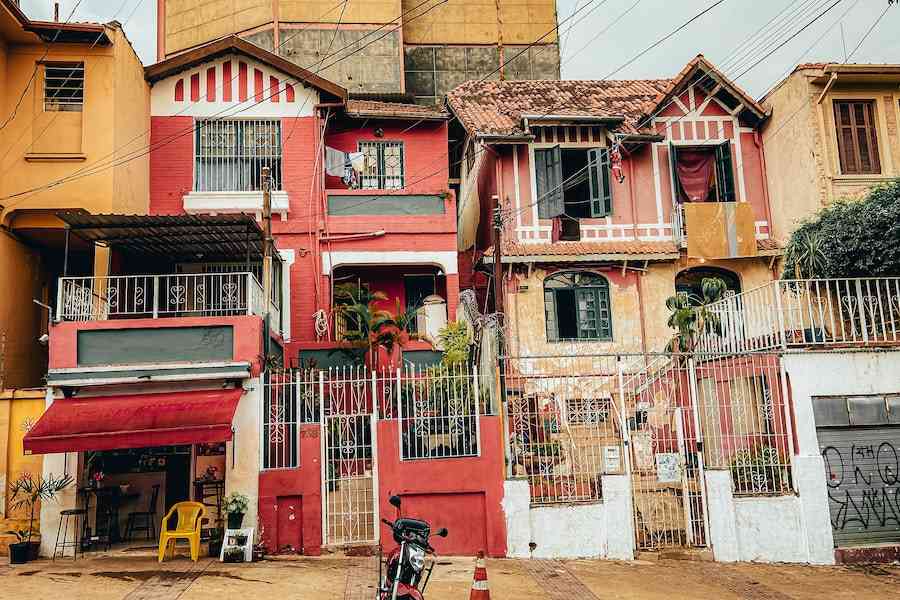
In recent years, the concept of a tiny house has gained significant traction as a minimalistic and sustainable housing option. Generally defined as a dwelling with a small footprint, typically under 500 square feet, tiny houses offer an alternative to traditional homes, promoting simpler living and reduced environmental impact. However, before embarking on the exciting journey of building a tiny house on your property, it is crucial to understand the permit requirements involved. This article will provide a comprehensive overview of whether you need a permit to build a tiny house and the implications of non-compliance with local regulations.
Do I Need A Permit To Build A Tiny House On My Property?
Yes, in most cases, you will need a permit to build a tiny house on your property. Permit requirements vary depending on your location and local regulations. It is important to research and comply with the zoning, building codes, and permit processes specific to your area to ensure a legal and safe construction.
Understanding Tiny Houses
Understanding tiny houses is crucial before embarking on building one on your property. Here are four key points to consider when it comes to understanding tiny houses:
Tiny houses are small, compact dwellings typically ranging from 100 to 500 square feet in size. They are designed to maximize space utilization and often incorporate multi-functional areas, such as loft sleeping areas, foldable furniture, and clever storage solutions. Tiny houses emphasize minimalism, sustainability, and efficient use of resources.
Tiny houses can be classified as either movable or permanent structures. Movable tiny houses, also known as tiny homes on wheels, are built on a trailer chassis, allowing for mobility. Permanent tiny houses, on the other hand, are constructed on a foundation and typically adhere to traditional building codes and zoning regulations.
Tiny houses offer several advantages. They are more affordable compared to traditional homes, both in terms of construction and ongoing maintenance costs. Tiny houses promote a simpler and clutter-free lifestyle, encouraging individuals to focus on experiences and personal fulfillment rather than material possessions. Additionally, tiny houses have a smaller environmental footprint, consuming fewer resources and often utilizing eco-friendly technologies.
While living in a tiny house can be rewarding, it is essential to consider the challenges associated with it. Limited space requires careful planning and organization to ensure comfort and functionality. Zoning and building code regulations vary across different locations, which can impact where you can legally place and construct a tiny house. Additionally, some areas may have minimum square footage requirements or restrictions on permanent dwelling structures.
Importance Of Understanding Permit Requirements
Understanding permit requirements is of utmost importance when it comes to building a tiny house on your property. Here are four key reasons why comprehending these requirements is essential:
- Legal Compliance: Building without the necessary permits can result in legal consequences and fines. Local governments have zoning regulations and building codes in place to ensure the safety and well-being of residents. By obtaining the required permits, you demonstrate your commitment to complying with these regulations, avoiding potential legal issues that may arise from unauthorized construction.
- Safety and Structural Integrity: Permit requirements are designed to ensure that buildings meet certain safety standards. They typically involve inspections and adherence to specific construction practices. By going through the permit process, you can ensure that your tiny house is constructed properly, minimizing the risk of accidents, structural failures, or other safety hazards.
- Property Value and Resale Potential: A permitted tiny house can add value to your property. If you decide to sell your property in the future, having the proper permits in place will give potential buyers confidence in the legality and quality of the construction. Without permits, the lack of documentation may raise concerns and deter potential buyers, affecting the resale potential of your property.
- Access to Utilities and Services: Many utility providers require proof of permitting before connecting services to a dwelling. Obtaining the necessary permits allows you to access essential utilities such as electricity, water, and sewage systems. By having these services available, you can ensure a comfortable living environment in your tiny house and avoid the challenges of living off-grid or without essential amenities.
Permit Requirements For Tiny Houses
Permit requirements for tiny houses vary depending on the location and specific regulations of each jurisdiction. While it is essential to research and consult with local authorities for accurate and up-to-date information, here are some common permit requirements for tiny houses:
- Residential Zoning Requirements: Many areas have specific zoning regulations that determine where tiny houses can be located. They may be allowed in residential zones, designated as accessory dwelling units (ADUs), or subject to specific zoning classifications. Understanding and complying with these zoning requirements is crucial to obtain the necessary permits.
- Minimum Square Footage Requirements: Some jurisdictions have minimum square footage requirements for dwellings. If a tiny house falls below the minimum square footage threshold, it may require special permits or be classified as an accessory structure rather than a permanent dwelling.
- Foundation and utility Considerations: The type of foundation and utility connections for the tiny house may impact permit requirements. If the tiny house is built on a permanent foundation, it may need to comply with traditional building codes. Connecting to utilities, such as water, electricity, and sewage systems, may also require specific permits and inspections.
- Health and Safety Codes: Permits are often necessary to ensure compliance with health and safety codes. These codes cover aspects such as electrical wiring, plumbing, fire safety, and structural integrity. Meeting these requirements through inspections and approvals is essential to obtain the required permits.
- Off-Grid and Eco-Friendly Options: Some individuals choose to live off-grid or utilize eco-friendly systems in their tiny houses, such as solar power or composting toilets. While these options can be environmentally friendly, specific permits or approvals may still be required to ensure compliance with local regulations and safety standards.
Factors That Determine The Need For A Permit
Several factors contribute to determining whether a permit is required when building a tiny house on your property. Understanding these factors is essential to ensure compliance with local regulations. Here are key factors that influence the need for a permit:
- Location and Zoning Regulations: Different regions have varying zoning regulations that dictate land use and construction requirements. Zoning regulations determine whether tiny houses are allowed on residential properties, designated as accessory dwelling units, or permitted in specific zones. It is crucial to research the zoning regulations in your area to determine if permits are required for tiny house construction.
- Size and Classification of the Tiny House: The size of the tiny house may influence the need for a permit. Some jurisdictions have minimum square footage requirements for dwellings, which could impact the classification of a tiny house. For example, if a tiny house falls below the minimum square footage threshold, it may be classified as an accessory structure, potentially requiring different permits or permissions.
- Foundation and Utility Connections: The type of foundation and utility connections for the tiny house can also determine the need for a permit. If the tiny house is on wheels and classified as a movable structure, it may be subject to different regulations than a permanent structure built on a foundation. Additionally, connecting utilities such as electricity, water, and sewage systems may require permits and inspections.
- Health and Safety Codes: Permits are often required to ensure compliance with health and safety codes. These codes cover various aspects, such as electrical wiring, plumbing, fire safety, and structural integrity. Obtaining permits ensures that the construction and installation meet the necessary standards, ensuring the safety of occupants.
- Local Building Codes: Each jurisdiction has its own set of building codes that specify construction standards and requirements. These codes cover areas like structural design, insulation, ventilation, and energy efficiency. Compliance with these codes is typically necessary to obtain a permit for a tiny house.
Conclusion
Obtaining the necessary permits ensures legal compliance, safety, and protection from potential legal issues and fines. It also preserves the value and resale potential of your property and allows access to essential utilities and services. By following local regulations, you can enjoy the benefits of a well-built and authorized tiny house while avoiding potential pitfalls associated with non-compliance.
FAQ’s
Do I Always Need A Permit To Build A Tiny House On My Property?
Permit requirements vary depending on your location and local regulations. It is essential to research and understand the specific permit requirements for your area before beginning construction. In most cases, permits are required for tiny house construction.
What Documents Or Information Do I Need For A Tiny House Permit Application?
The specific documentation and information required for a permit application can vary. However, common requirements include construction plans, site plans, proof of property ownership, building specifications, and sometimes engineering or architectural drawings. It is advisable to contact your local building department for a comprehensive list of required documents.
Can I Build A Tiny House Without A Permit And Just Live In It?
Building and living in a tiny house without the necessary permits is not recommended. Doing so can result in legal consequences, fines, and difficulties in accessing utilities or obtaining insurance coverage. It is important to comply with local regulations to ensure the safety, legality, and marketability of your tiny house.
How Long Does It Take To Obtain A Permit For A Tiny House?
The time it takes to obtain a permit can vary depending on factors such as the complexity of the project, the workload of the building department, and the completeness of the permit application. The process can range from a few weeks to several months. It is advisable to start the permit application process well in advance of your planned construction start date.
Can I Get A Permit For A Tiny House If My Property Is Located In An Area With Strict Zoning Regulations?
Strict zoning regulations can pose challenges for obtaining permits for tiny houses. However, it is not impossible. Some jurisdictions have specific provisions or variances for tiny houses, while others may allow them as accessory dwelling units (ADUs). It is important to research and understand the zoning regulations in your area and potentially seek professional guidance to navigate the permit process in strict zoning areas.








